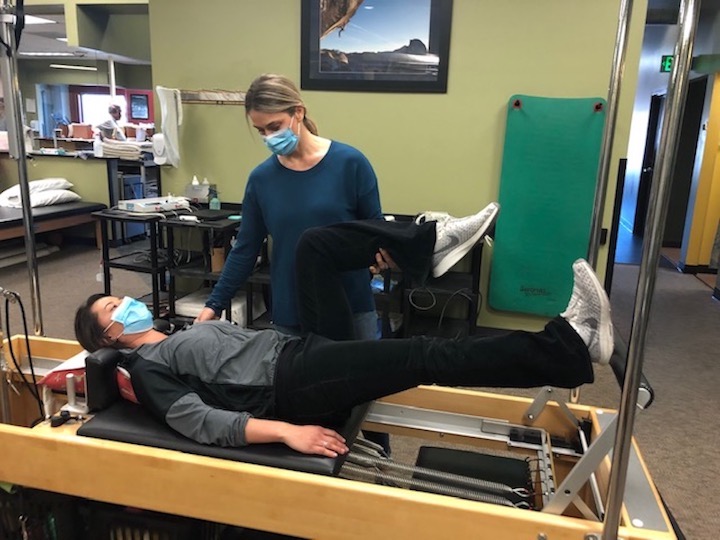
 For many women, the aches and pains that come along with pregnancy can linger well after giving birth. But women suffering from pelvic, low back, hip, neck and/or shoulder pain from the stresses of pregnancy, childbirth, breastfeeding or lifting children don’t have to grin and bear it.
For many women, the aches and pains that come along with pregnancy can linger well after giving birth. But women suffering from pelvic, low back, hip, neck and/or shoulder pain from the stresses of pregnancy, childbirth, breastfeeding or lifting children don’t have to grin and bear it.
Physical therapy can be a highly effective way to alleviate pain and dysfunction associated with pregnancy and postpartum conditions, according to physical therapist Erin Novelli (Bend East Clinic), Director of Rebound’s Women’s Health Program.
Women’s health physical therapists evaluate and treat more than just pregnancy and postpartum-related conditions: they have specialized training in a wide range of musculoskeletal disorders that can occur throughout a woman’s lifespan, and understand how a female’s hormones and unique physiology affect certain diagnoses.
“I have patients who are 20 years old as well as 80 years old,” said Novelli, who also commonly treats patients experiencing urinary incontinence (any uncontrolled leakage of urine) and pelvic organ prolapse (a lack of support of the pelvic organs by surrounding muscles and tissues).
Many women with an orthopedic issue such as low back pain unknowingly have some type of pelvic floor dysfunction, as the pelvis is a key support for the lower back, explained Novelli, who has worked as a PT for 23 years. “Everything is connected in the body,” she added.
Novelli said she regularly integrates Pilates exercises that focus on core stability, posture, flexibility, strength and breathing into her treatment sessions; she is a certified instructor in Stott Rehab Pilates. “I can watch a patient’s movement pattern during a Pilates exercise (either on the mat or the in-clinic Reformer machine) and see what they need to adjust,” she said. “Pilates is very functional — it integrates the whole body, which is how we move in real life.”
When crafting a home exercise plan for her patients, Erin Novelli said she typically assigns a mix of Pilates and traditional exercises that improve posture and core strength, depending on one’s condition. As a mother of two children, she understands how difficult it can be for busy parents to find time to exercise at home. “I often tell my patients to break up their workouts into small, manageable chunks throughout the day.”
Patient education also plays a crucial role in Novelli’s practice. “I want my patients to walk out of the clinic feeling like they have the tools and understanding needed to manage and improve symptoms they previously thought they just had to live with,” said Novelli, who also treats general orthopedic conditions. “You can change someone’s life if you give them the ability to help themselves.”
Click here to learn more about Rebound’s Women’s Health Program!
